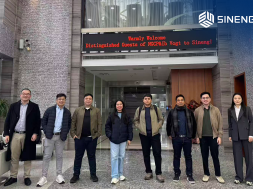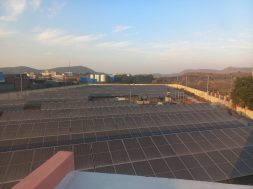
Maharashtra Charts Solar Path for Textile Sector with New Government Committee – EQ
In Short : Maharashtra Deputy CM Devendra Fadnavis has directed the formation of a joint committee to explore the integration of solar power in the state’s textile sector. The move aims to reduce energy costs, promote sustainability, and boost competitiveness. The committee will study feasibility, propose incentives, and recommend implementation strategies to support widespread adoption of solar energy across textile units.
In Detail : Maharashtra Deputy Chief Minister Devendra Fadnavis has taken a key step to promote renewable energy in the textile sector. He has directed the formation of a dedicated committee to explore the use of solar power across textile operations in the state.
The initiative comes as part of Maharashtra’s broader push toward sustainable industrial practices and energy efficiency. The textile sector, being power-intensive, stands to benefit significantly from this transition.
Fadnavis emphasized the importance of reducing operational costs in textile manufacturing. By leveraging solar energy, units can lower electricity expenses and improve long-term profitability.
The proposed committee will include representatives from relevant government departments, energy experts, and industry stakeholders. It will assess the feasibility of solar integration across various textile clusters in the state.
The committee is expected to examine available infrastructure, land use, rooftop potential, and financial models that can support solar deployment in textile units.
It will also explore state-level incentives, policy support, and public-private partnerships to facilitate investment and ensure smooth implementation of solar projects.
Fadnavis noted that widespread adoption of solar energy will not only support the textile industry but also contribute to the state’s clean energy goals and environmental commitments.
The textile sector in Maharashtra plays a vital role in employment and exports. Enhancing its sustainability profile could open new market opportunities and attract eco-conscious buyers.
With this move, the government is aiming to create a roadmap that supports both industrial growth and environmental responsibility through renewable energy solutions.















